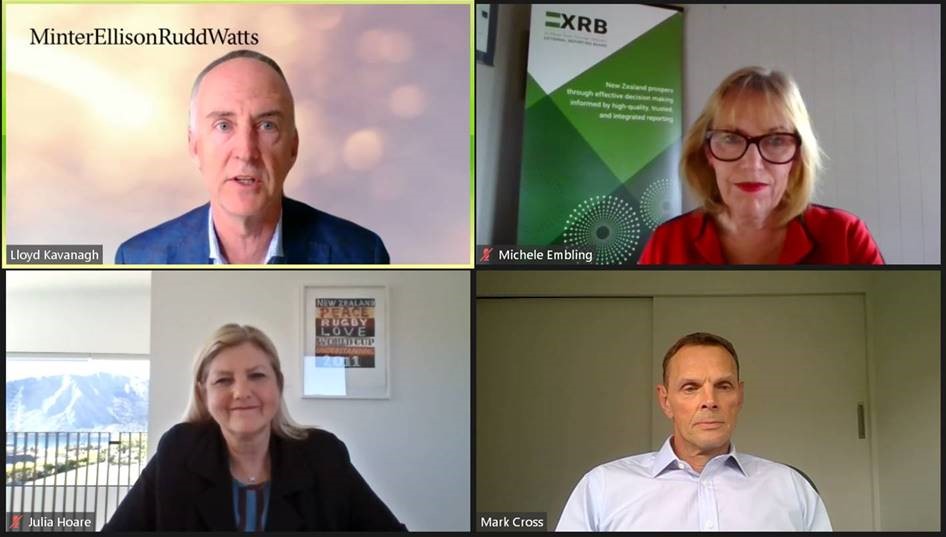Welcome to our second issue of Tirohanga: Financial Services Quarterly Outlook. If you want to look back at our first issue, you can find it here.
2021 was an extraordinary year in New Zealand and around the globe, due to the ongoing impacts of the COVID-19 pandemic and the rise of the Delta variant. Despite a lengthy lockdown in Auckland, and ongoing international travel restrictions, the financial services sector has continued to perform strongly, and the level of transactions, innovation, and new products brought to the market has exceeded all expectations.
This is not to overlook the impacts of the pandemic on physical and mental health, the ongoing financial pressures faced by businesses, (many of whom are continuing to struggle), on the arrival of the Omicron variant in New Zealand over the last week. Despite that, however, our team has been exceptionally busy, especially in the last quarter of 2021, and in this issue we recap some of the things we have been involved in, as well as highlight what we see as coming up in the financial services sector in the next three months. We also highlight one of our exceptional alumna Helen Thomson, who is currently at Aon.
We hope you enjoy this issue of Tirohanga, and if you have any suggestions or topics you would like us to cover, or would like to join the mailing list for our regular short updates, please contact us.
Continuing recognition of the MinterEllisonRuddWatts Financial Services Team
The Financial Services Team has been recognised again with top-tier international rankings. In December 2021, Chambers Asia-Pacific confirmed the team’s Band 1 ranking for Financial Services, Lloyd Kavanagh’s personal Band 1 ranking, and elevated Jeremy Muir’s personal ranking from Band 2 to Band 1. One market observer noted that: “They have a great depth of knowledge in all areas of their practice; the level of information provided is detailed, clear and concise”. To view the results, please click here.
They have a great depth of knowledge in all areas of their practice; the level of information provided is detailed, clear and concise
In January, The Legal 500 Asia-Pacific released the results of its review. Again, the Financial Services Team maintained its existing Band 1 ranking, and both Lloyd Kavanagh and Jeremy Muir were elevated individually to the rank of ‘Hall of Fame’. Maria Collett-Bevan retained her existing rank as a ‘Rising Star’. One market observer noted that: “Minters have the market leading reputation in the funds management space in NZ, and we felt in safe hands. Their commercial market insights and strong relations with the key regulators meant that they are able to help with key strategic calls as well as legal advice. We also like their pro-active commercial style, and willingness to go the extra mile in client service”. To view the results, please click here.
Finally, Lloyd Kavanagh was also one of a very small number of leading New Zealand lawyers profiled in this month’s New Zealand Herald article ‘Power List: NZ’s Top Corporate and Civil Lawyers’. The Herald noted that:“The MinterEllisonRuddWatts partner is considered an industry leader in investment funds and advice, fintech and financial services regulation, and an expert in corporate governance”. To view the article, please click here (behind a paywall).
Both Lloyd and Jeremy note that these accolades are a reflection of the strength of a talented team.
Trends: What themes will we see in the next three months?
In many ways the trends we see in the next three months are a continuation, and in some areas an intensification, of the main themes we identified in our last issue. There are, however, new changes which we see as likely to spur on new trends.
Change of the guard at the FMA
Significant changes within the leadership of the Financial Markets Authority (FMA) are underway. In January this year, Samantha Barrass will take up her role as the new CEO of the FMA. Barrass, a returning Kiwi, was previously the CEO of the financial regulator in Gibraltar. The role encompassed conduct and prudential regulatory oversight. Earlier in her career she worked for nine years in a number of roles at the Financial Services Authority in the UK (now the Financial Conduct Authority). Her profile can be found here.
We expect that Ms Barrass, given her experience, will bring new priorities and approaches to the FMA’s supervision and enforcement, and these changes will likely show up in the next quarter. It will also mean that various members of the FMA team who are currently in acting roles (including acting CEO Liam Mason) will revert to their previous roles.
Rob Everett, the former CEO of the FMA, will take up his role as the new CEO of New Zealand Growth Capital Partners (NZGCP) on 31 January. We look forward to continuing our work with NZGCP in relation to obtaining key investments for new funds being set up by our clients.
Regulatory action
In our last issue of Tirohanga, we pointed out that the FMA now has a well-resourced enforcement team and is taking action. We see this trend accelerating into 2022. In November 2021, the FMA made a significant speech at a seminar hosted by MinterEllisonRuddWatts in which they outlined their expectations for the way in which supervised entities will navigate their relationship with the FMA.
We expect this trend of more stringent enforcement from the FMA in relation to both the Financial Markets Conduct Act 2013 (FMCA) and the Anti-Money Laundering and Countering Financing of Terrorism Act 2009 (AML/CFT Act) to continue throughout the first quarter of 2022. Likewise, the Reserve Bank of New Zealand (RBNZ), having established an enforcement unit for the first time, has now staffed it, and has issued enforcement guidance which makes clear that, at least in relation to the AML/CFT Act, they will be more active.
Climate change and ESG
Issues relating to the new climate disclosures regime (now incorporated into the FMCA, but not yet in force) will dominate the agenda of large banks, insurers, and fund managers as “climate reporting entities” seek to familiarise themselves with their new obligations and prepare the required systems and processes before the first reports are due as early as 2023. The External Reporting Board (XRB) will continue developing the financial reporting standard for climate-related financial disclosures, and we expect the FMA to also start issuing guidance as to how it will enforce the regime.
Cryptocurrencies
Globally speaking, there has been an increasing focus on the regulation of cryptocurrencies. We anticipate that this international focus may also influence the attitude of the New Zealand regulators and government agencies, especially after the Cryptocurrency Select Committee finished hearing submissions at the end of last year. Jeremy Muir was retained by the Select Committee as a special adviser.
We think the Ministry of Business, Innovation and Employment may be prompted by recent moves in Australia to create a licensing framework for cryptocurrency exchanges to come up with their own proposals as to how they may grapple with the growing popularity of cryptocurrencies amongst retail customers in New Zealand.
What we’ve been up to
Over the last quarter of 2021, we’ve been busy helping our clients on some interesting and ground-breaking projects, and hosting exciting and insightful seminars, all the while juggling the complications thrown up by the COVID-19 pandemic and New Zealand’s shift into the new Traffic Light Framework. Obviously much of our work remains confidential, but we have highlighted some examples which are now public. These include:
.png)
.png)
Sale of Aon KiwiSaver
We assisted Aon New Zealand with the sale of Aon New Zealand’s superannuation business, which includes its KiwiSaver scheme and Superannuation Master Trust businesses, to Fisher Funds. The deal adds over 21,000 KiwiSaver and Master Trust members and approximately $1 billion to Fisher Funds’ existing $14.5b portfolio. For more information, please click here.
Transfer of ASB Superannuation Master Trust
We acted for ASB Group Investments Limited (ASBGI) on the transfer of the fund management rights in the ASB Superannuation Master Trust (SMT) to SmartShares Limited (a subsidiary of NZX). SMT holds more than $1.8 billion in retirement savings from more than 17,500 members across more than 100 employer groups. The transition of the fund manager role is expected to be completed in February 2022, with transition arrangements for investment management, administration, and registry to follow after that. For more information, please click here.
MyNativeForest start-up
We act for a start-up, MyNativeForest, who have created and are currently testing the alpha version of a carbon trading platform to incentivise the planting of more native forests in New Zealand. Landowners register their native forest land project on the platform and fund it through buyers’ purchases of carbon futures in the project. When the carbon futures are verified through landowners’ submission of forest returns, they become carbon credits which are owned by the buyers who have invested in that project. For more information, see their website here.
Better Bite Ventures set-up
We, along with EY and Cooley, assisted Better Bite Ventures to set up a New Zealand domiciled venture capital fund structure with investors across the globe. The fund makes seed and early-stage venture investments mainly in the Asia-Pacific region with a focus in alt-protein, plant-based, cultivated, precision fermentation, and molecular farming areas.
Sugar start-up
We act for a fintech start-up, Sugar, which has a goal to improve people’s financial well-being and to do so in a smart and automatic way. They have developed an application called Sugar Wallet which assists users to automatically save and invest money based on their earning and spending, and are separately developing ways for users to also earn rewards such as cashbacks for buying from Sugar Wallet partners. For more information, see their website here.
Environmental and social policy review
We reviewed for a large New Zealand financial services provider its new environmental and social policy, as part of its sustainability project, to ensure the commitments made were appropriately supported and disclosed. The work involved identifying commitments across a wide range of areas of the law (including the FMCA), analysing the financial service provider’s public and other commitments, completing a gaps analysis and risk assessment of the proposed policy against compliance systems and processes, and confirming the governance arrangements.
Establishment of Generate Wholesale Scheme
We assisted Generate with establishing a new wholesale unit trust. Generate Investment Management Limited is a New Zealand owned, award winning licensed fund manager. Generate manages the Generate KiwiSaver Scheme and the Generate Unit Trust Scheme and has over $3.2 billion of funds under management.
MinterEllisonRuddWatts and the AML/CFT consultation
In the last quarter of 2021, the Ministry of Justice (MoJ) conducted a consultation process in relation to its statutory review of the AML/CFT Act. It promises to involve a root and branch reassessment of a key regime which has had a major impact across the financial services sector since it came into force in 2013. Our own Lloyd Kavanagh is a member of the MoJ’s Industry Advisory Group.
The MoJ invited submissions from the public, and MinterEllisonRuddWatts filed a submission which made key recommendations as to how New Zealand’s AML/CFT regime could be made more fit for purpose. Our submission will be made public on the MoJ’s website in due course.
In the midst of the consultation process in October last year, MinterEllisonRuddWatts, in conjunction with Digital Identity New Zealand (DINZ), hosted an insightful discussion and seminar on the latest trends and issues regarding the AML/CFT Act. The panel, consisting of Lloyd Kavanagh, Janine Granger (Co-founder and CEO of Easy Crypto), Nick Kokay (Senior Policy Advisor at the MoJ), Claire Barber (CEO of MATTR), and Daniel Rogers (Founder & Director at Avid AML Limited), discussed the DINZ-commissioned analysis of the Reliance and Re-Use of Identity Verification for AML/CFT Act purposes, and considered key changes that should be made to the regime as part of the review.
FMA speech by Karen Chang
In November 2021, the FMA’s Karen Chang (Acting General Counsel) and Margot Gatland (Acting Head of Enforcement) addressed the relationship between entity and regulator and how the FMA views self-reporting, remediation, and inadvertent misconduct, followed by a panel discussion facilitated by MinterEllisonRuddWatts litigation partners Andrew Horne and Jane Standage.
Ms Chang’s speech can be found here. They addressed several misconceptions which the FMA believes exist in the supervised community, focussing on the following topics:
- When to enforce. The FMA does not take a “why not litigate” approach to breaches, but enforcement is more likely to be appropriate where there is customer harm or serious misconduct.
- Inadvertent conduct. Regulated entities are often surprised when the FMA commences enforcement action for inadvertent breaches that they have voluntarily disclosed. The FMA’s view is that inadvertent errors justify enforcement because they may demonstrate a wider problem such as undue deference to the wishes of a marketing team or a lack of investment in systems or processes. Enforcement may therefore be used to incentivise entities to dedicate appropriate resources to meet commitments to customers even where conduct was not deliberate.
- Self-reporting. The FMA views self-reporting as a minimum expectation for supervised entities. Best practice requires proactive self-reporting to the Board and then to the FMA when an issue requiring remediation is found. Entities may not get as much credit for self-reporting when they disclose a breach as part of a thematic review or request for information initiated by the FMA. The FMA has warned that, although it may be tempting to wait until a problem has been fully unravelled, it expects early engagement. Although prompt self-reporting and remediation will colour how the FMA views the conduct, it does not give immunity from litigation, especially if the harm is significant or the fault is systemic.
- Remediation. The FMA views putting the customer right as the bare minimum step. This must be prompt and effective. The FMA will take into account whether remediation is timely, well organised and communicated, and whether it suffered from mistakes and delays. If an entity struggles to carry out remediation, this may raise concerns regarding the robustness of its systems and governance. Again, remediation does not remove the risk of enforcement action.
- Maturity. The FMA considers that regulated entities have had sufficient time to understand and meet relevant standards and observe the way that the FMA operates. It will be less patient with those that have been regulated since December 2016 than with recently regulated entities.
MinterEllisonRuddWatts climate seminars and discussions
In November last year, we collaborated with the XRB to host two insightful webinars discussing climate-related disclosures and the consultation draft of the Governance and Risk Management Climate Standard.
The first webinar, held hot on the heels of the release of the XRB’s Consultation Paper on climate-related disclosures, was hosted by INFINZ. Lloyd Kavanagh facilitated the discussion, which featured senior board directors Michele Embling, Mark Cross, and Julia Hoare.

The second session, held the week after, featured Lloyd Kavanagh on the panel alongside XRB Chief Executive April Mackenzie, and XRB Director of Climate Standards Dr Amelia Sharman, where they discussed what is proposed to be included in the Governance and Risk Management sections of the new climate standards and the key questions the XRB were seeking feedback on.

Looking forward
Retail Payment System Bill before select committee
In October 2021, the Minister of Commerce and Consumer Affairs, Hon Dr David Clark, introduced the Retail Payment System Bill (Payment System Bill) to Parliament with the aim of reducing merchant service fees, and the Payment System Bill is currently before Select Committee. Merchant service fees are fees paid by merchants to their acquirer (usually their bank) when their customers make credit or debit card payments. The overall objective of the proposed new regime is to ensure the retail payments system delivers long-term benefits to merchants and consumers through efficient retail payment networks and competition in the supply of retail payment services. The Cabinet Paper on the Payment System Bill notes for instance that “New Zealand merchants continue to pay more than their Australian counterparts for accepting credit cards and online debit cards”, partly due to the lack of efficient competition in aspects of the retail payments system. The Commerce Commission will be the regulator of the new regime.
For more information on the Payment System Bill, please click here.
XRB’s development of the Climate-related Disclosures standard
The Financial Sector (Climate-related Disclosures and Other Matters) Amendment Bill was enacted into law in October last year. Coming into force via amendments to the FMCA, the Financial Reporting Act 2013, and the Public Audit Act 2001, the regime will make mandatory climate-related disclosures for large listed companies with a market capitalisation of more than $60 million; large licensed insurers, registered banks, credit unions, building societies, and managers of investment schemes with more than $1 billion in assets; and some Crown financial institutions (via letters of expectation). These entities will be required to make disclosures in accordance with climate standards to be issued by the XRB alongside wider year end reporting in 2023 at the earliest.
The XRB is set to release the second discussion document in relation to their development of the climate standards in March. This second document will focus on Strategy, as well as Metrics and Targets. The initial draft will be released for a four-week consultation period. For more information about the XRB’s role in developing the climate standards, please click here.
New Deposit Takers Bill
In December last year, the RBNZ released an exposure draft of the new Deposit Takers Bill for public consultation. The consultation is open until February 21. The Deposit Takers Bill will make some of the most profound changes to banking regulation in a generation, and create a new regime for the prudential regulation of all deposit takers – institutions that are in the business of taking deposits and lending to household and businesses. The Bill will repeal the Banking (Prudential Supervision) Act 1989 (the new name for the prudential supervision related parts of the Reserve Bank of New Zealand Act 1989) and the Non-bank Deposit Takers Act 2013, and therefore affect all current registered banks and licensed non-bank deposit takers. The Bill also makes changes to the ‘regulatory perimeter’ and may capture entities that provide call accounts for wholesale investors. It allows the RBNZ to declare certain persons to be deposit takers within the scope of the regime. There is also an ability to impose standards related to lending by non-deposit taking lenders.
Further public consultation is expected on the funding framework which includes industry levies before the Depositor Compensation Scheme is implemented.
For more information on the Deposit Takers Bill, please click here.
RBNZ review of overseas bank branches
In October last year, the RBNZ announced a review of its policy for the registration of branches of overseas banks in New Zealand. The review is aimed at creating “a simple, coherent and transparent policy framework for branches of overseas banks”. The consultation closes on March 2. The RBNZ intends to develop a policy approach after considering all submissions, and to subsequently undertake further consultation on that approach.
The RBNZ has identified three key issues relating to the regulation and supervision of branches of overseas banks:
- The current policy is not applied consistently to overseas branches operating in New Zealand. RBNZ’s policy in this area has developed over time and, as a result, different branches are subject to different conditions of registration that permit them to undertake different activities in New Zealand.
- There are inherent limitations on the RBNZ’s ability to regulate branches, which will be primarily subject to home country rules, which may change over time.
- There are inherent limitations on the RBNZ’s ability to supervise branches. As the “host country”, RBNZ primarily relies on “home country” supervision. Home country supervisors may not apply particular scrutiny to an overseas bank’s New Zealand operations, where they represent a very small part of the bank’s global business.
In response to these three key issues, the RBNZ is consulting on the following policy questions:
- What is the appropriate threshold for local incorporation?
- Should branches be permitted to take retail deposits?
- Should dual registration (i.e. belonging to a banking group that has both a subsidiary and a branch that are registered as banks in New Zealand) be allowed?
- Should the RBNZ pursue greater regulatory and supervisory integration with home country supervisors?
Alumni spotlight – Helen Thomson
In this issue of Tirohanga: Financial Services Quarterly Outlook, we shine a light on our alum Helen Thomson. Helen was a Senior Associate in the Financial Services Team between September 2014 and August 2016. Since November 2016, she has been a Senior Legal and Compliance Counsel at Aon. It was a pleasure to work closely with her as she played a major role in shepherding to completion the sale of Aon New Zealand’s superannuation business to Fisher Funds. Helen has also recently had a baby and is currently on parental leave. Congratulations Helen!

In case you missed it
Recent promotions and other news
From 1 January 2022, Zena Razoki has been promoted to Senior Associate and Vivien Liu to Senior Solicitor. See here for the announcement. Congratulations! We would also like to congratulate Zena on the birth of her son, Nicholas, late last year.
Our updates
We are continually publishing financial services updates on industry developments that we think our clients might be interested in. If you’ve missed some of our updates, below is a list of what we’ve published in the last quarter.
AML/CFT
- AML/CFT Act statutory review – Ministry of Justice calls for submissions
- FATF releases updated virtual asset and virtual asset service provider guidance
- FMA releases new AML/CFT sector risk assessment
- FMA and DIA issue reminder about outsourcing CDD to third parties
Enforcement
- Reserve Bank invites views on its proposed new enforcement principles
- FMA issues new guidance on dealing with their enforcement team
- FMA imposes $250k penalty for false or misleading statements by Medical Kiwi
RBNZ
- RBNZ launches review of overseas bank branches in New Zealand
- Feedback sought on exposure draft of Deposit Takers Bill released
Financial Advice
- FMA sets FAP full licence target application dates
- ASA releases new Financial Advertising Code
- FMA releases new self-assessment tools to help FAPs prepare for full licensing
- FMA cancels financial advice provider’s transitional licence
Climate Change and Finance
Reform




